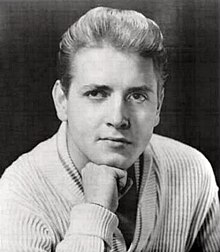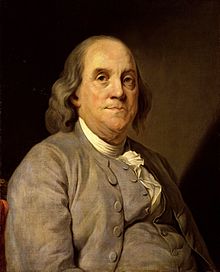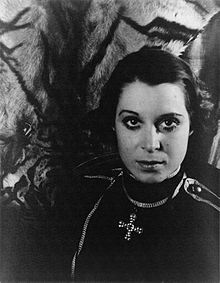April 17 is the 107th day of the year (108th in leap years) in the Gregorian calendar. There are 258 days remaining until the end of the year.
Holidays
- Christian feast day:
- Earliest day on which Store Bededag or General Prayer Day can fall, while May 13 is the latest; observed on the 4th Friday after Easter. (Denmark)
- Evacuation Day, celebrates the recognition of the independence of Syria from France in 1946.
- FAO Day (Iraq)
- Flag Day (American Samoa)
- Women’s Day (Gabon)
- World Hemophilia Day (International observance)
History
In 69, After the First Battle of Bedriacum, Vitellius becomes Roman Emperor.
In 1080, The King of Denmark Harald III dies and is succeeded by Canute IV, who would later be the first Dane to be canonized.
In 1349, Fall of the Bavand dynasty, and rise of the Afrasiyab dynasty.
In 1397, Geoffrey Chaucer tells the Canterbury Tales for the first time at the court of Richard II. Chaucer scholars have also identified this date (in 1387) as the start of the book’s pilgrimage to Canterbury.
In 1492, Spain and Christopher Columbus sign the Capitulations of Santa Fe for his voyage to Asia to acquire spices.
In 1521, Trial of Martin Luther over his teachings begins during the assembly of the Diet of Worms. Initially intimidated, he asks for time to reflect before answering and is given a stay of one day.
In 1524, Giovanni da Verrazzano reaches New York harbor.
In 1555, After 18 months of siege, Siena surrenders to the Florentine–Imperial army. The Republic of Siena is incorporated into the Grand Duchy of Tuscany.
In 1790, Benjamin Franklin, American inventor, publisher, and politician, 6th President of Pennsylvania (b. 1706) dies. He was one of the Founding Fathers of the United States and in many ways was “the First American”. A world-famous polymath, Franklin was a leading author, printer, political theorist, politician, postmaster, scientist, inventor, civic activist, statesman, and diplomat. As a scientist, he was a major figure in the American Enlightenment and the history of physics for his discoveries and theories regarding electricity. As an inventor, he is known for the lightning rod, bifocals, and the Franklin stove, among other inventions. He facilitated many civic organizations, including Philadelphia’s fire department and a university. Franklin earned the title of “The First American” for his early and indefatigable campaigning for colonial unity; as an author and spokesman in London for several colonies, then as the first United States Ambassador to France, he exemplified the emerging American nation. Franklin was foundational in defining the American ethos as a marriage of the practical values of thrift, hard work, education, community spirit, self-governing institutions, and opposition to authoritarianism both political and religious, with the scientific and tolerant values of the Enlightenment. In the words of historian Henry Steele Commager, “In a Franklin could be merged the virtues of Puritanism without its defects, the illumination of the Enlightenment without its heat.”To Walter Isaacson, this makes Franklin “the most accomplished American of his age and the most influential in inventing the type of society America would become.”
In 1797, Sir Ralph Abercromby attacks San Juan, Puerto Rico, in what would be one of the largest invasions of the Spanish territories in America.
In 1797, Citizens of Verona, Italy, begin an eight-day rebellion against the French occupying forces, which will end unsuccessfully.
In 1863, American Civil War: Grierson’s Raid begins – troops under Union Army Colonel Benjamin Grierson attack central Mississippi.
In 1864, American Civil War: The Battle of Plymouth begins – Confederate forces attack Plymouth, North Carolina.
In 1882, George Jennings, English engineer and plumber, invented the Flush toilet (b. 1810) dies. Jennings specialised in designing toilets that were “as perfect a sanitary closet as can be made”. However, he also excelled in public sanitation projects such as the design of the underground ‘public convenience’. The entrances to these were elaborate metal railings and arches lit by lamps, with interiors built of slate and later, of ceramic tiles. A beautiful example of a public convenience from a period a little after Jennings’s death is the Gentleman’s Convenience at Wesley’s Chapel, City Road, London built in 1891, by Thomas Crapper, in a manner Jennings would have liked. Jennings’ own most famous installation was for The Great Exhibition in the Retiring Rooms of The Crystal Palace but does not survive.
In 1895, The Treaty of Shimonoseki between China and Japan is signed. This marks the end of the First Sino-Japanese War, and the defeated Qing Empire is forced to renounce its claims on Korea and to concede the southern portion of the Fengtien province, Taiwan and the Pescadores Islands to Japan.
In 1897, The Aurora, Texas UFO incident
In 1905, The Supreme Court of the United States decides Lochner v. New York, which holds that the “right to free contract” is implicit in the due process clause of the Fourteenth Amendment of the United States Constitution.
In 1907, The Ellis Island immigration center processes 11,747 people, more than on any other day.
In 1912, Russian troops open fire on striking goldfield workers in northeast Siberia, killing at least 150.
In 1937, Daffy Duck‘s first appearance, in Porky’s Duck Hunt.
In 1941, World War II: The Kingdom of Yugoslavia surrenders to Germany.
In 1942, French prisoner of war General Henri Giraud escapes from his castle prison in Festung Königstein.
In 1944, Forces of the Communist-controlled Greek People’s Liberation Army attack the smaller National and Social Liberation resistance group, which surrenders. Its leader Dimitrios Psarros is murdered.
In 1945, Brazilian forces liberate the town of Montese, Italy, from German Nazi forces.
In 1946, Syria obtains its Independence from the French occupation.
In 1949, At midnight 26 Irish counties officially leave the British Commonwealth. A 21-gun salute on O’Connell Bridge, Dublin, ushers in the Republic of Ireland.
In 1951, The Peak District becomes the United Kingdom‘s first National Park.
In 1961, Bay of Pigs Invasion: A group of Cuban exiles financed and trained by the CIA lands at the Bay of Pigs in Cuba with the aim of ousting Fidel Castro.

In 1960, Eddie Cochran, American singer-songwriter and guitarist (b. 1938) died aged 21 after a road accident, whilst travelling in a taxi in Chippenham, Wiltshire, during his British tour in April 1960, having just performed at Bristol’s Hippodrome theatre. He was an American musician. Cochran’s rockabilly songs, such as “C’mon Everybody“, “Somethin’ Else“, and “Summertime Blues“, captured teenage frustration and desire in the late 1950s and early 1960s. He experimented with multitrack recording and overdubbing even on his earliest singles, and was also able to play piano, bass and drums. His image as a sharply dressed and good-looking young man with a rebellious attitude epitomized the stance of the 50s rocker, and in death he achieved an iconic status. Cochran was born in Minnesota and moved with his family to California in the early 1950s. He was involved with music from an early age, playing in the school band and teaching himself to play blues guitar. In 1955, he formed a duet with the guitarist Hank Cochran (no relation), and when they split the following year, Cochran began a song-writing career with Jerry Capehart. His first success came when he performed the song “Twenty Flight Rock” in the movie The Girl Can’t Help It, starring Jayne Mansfield. Soon afterwards, Liberty Records signed him to a recording contract.
In 1964, Jerrie Mock becomes the first woman to circumnavigate the world by air.
In 1964, Ford Mustang is introduced to the North American market.
In 1969, Sirhan Sirhan is convicted of assassinating Robert F. Kennedy.
In 1969, Czechoslovakian Communist Party chairman Alexander Dubček is deposed.
In 1970, Apollo program: The ill-fated Apollo 13 spacecraft returns to Earth safely.
In 1971, The People’s Republic of Bangladesh forms, under Sheikh Mujibur Rahman at Mujibnagor.
In 1973, George Lucas begins writing the treatment for The Star Wars.
In 1975, The Cambodian Civil War ends. The Khmer Rouge captures the capital Phnom Penh and Cambodian government forces surrender.
In 1978, Mir Akbar Khyber is assassinated, provoking a communist coup d’état in Afghanistan.
In 1982, Patriation of the Canadian constitution in Ottawa by Proclamation of Queen Elizabeth II, Queen of Canada.
In 1984, Police Constable Yvonne Fletcher is killed by gunfire from the Libyan People’s Bureau (Embassy) in London during a small demonstration outside the embassy. Ten others are wounded. The events lead to an 11-day siege of the building.
In 1986, The Three Hundred and Thirty Five Years’ War between the Netherlands and the Isles of Scilly ends.
In 1986, Nezar Hindawi‘s attempt to detonate a bomb aboard an El Al flight from London to Tel Aviv is thwarted.
In 2003, John Paul Getty, Jr., American-English philanthropist (b. 1932) dies. He was born Eugene Paul Getty, was a wealthy American-born British philanthropist and book collector. He was the elder son of Jean Paul Getty, Sr. (1892–1976), one of the richest men in the world at the time, and his wife Anne Rork. The Getty family’s wealth was the result of the oil business founded by George Franklin Getty. At birth he was given the name Eugene Paul Getty, but in later life he adopted other names, including Paul Getty, John Paul Getty, Jean Paul Getty, Jr. and John Paul Getty II. A long-time Anglophile, he became a British citizen in 1997. In 1986, he was awarded an honorary knighthood for services to causes ranging from cricket (a sport he came to love despite his American upbringing), to art and to the Conservative Party. His honorary knighthood became substantive when he became a British citizen. In 1998 he changed his name by deed poll when he renounced the first name Eugene and wished to be known as Sir Paul Getty, KBE.
In 2006, Sami Hammad, a Palestinian suicide bomber, detonates an explosive device in Tel Aviv, killing 11 people and injuring 70.
In 2007, Kitty Carlisle, American actress and singer (b. 1910) dies. She was an American singer, actress and spokeswoman for the arts. She is best remembered as a regular panelist on the television game show To Tell the Truth. Carlisle served 20 years on the New York State Council on the Arts. In 1991, she received the National Medal of Arts from President George H. W. Bush. Eight years later, in 1999, she was inducted into the American Theater Hall of Fame.
In 2007, The Jackson City Council (TN) received a letter from John Allen and Madison Central Partners (a group not mentioned in the original letter of intent), that stated they no longer wished to sign the original letter that had been voted on and passed (8-1) by the city council. Councilman Neudecker’s vote being the only opposing vote. In the letter they state that their “true intent had been accomplished”. From this we can only assume that they mean that they had the support of the council if this item should and will come up again.
In 2008, By a 7-2 decision, the Supreme Court today upheld Kentucky’s use of lethal injection to execute prisoners sentenced to death. Kentucky’s process of using three drugs in executions was challenged on the grounds that, if the anesthetic administered first does not work, the other drugs can cause excruciating pain. Only two justices joined in Chief Justice Roberts’ majority opinion, although four others concurred in the result. Justices Ruth Bader Ginsburg and David Souter dissented.
In 2013, An explosion at a fertilizer plant in the city of West, Texas, kills 15 people and injures 160 others.
In 2014, NASA‘s Kepler confirms the discovery of the first Earth-size planet in the habitable zone of another star.


